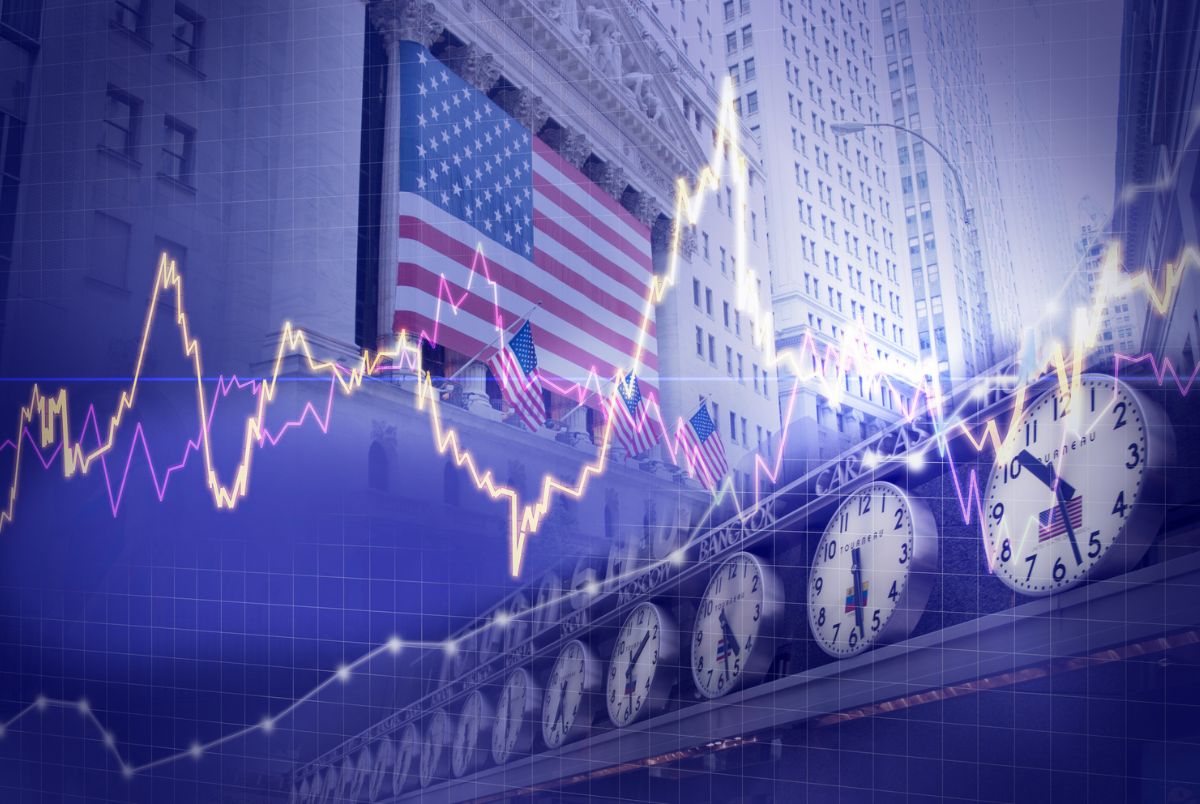By Andrew Shirley | AMAC Exclusive
With the dismal failure of the White House’s “Bidenomics” pitch now evident, Biden’s economic message to voters for his re-election effort now relies heavily on what at first appear to be strong returns in the stock market. But even this argument is undermined by Biden’s other economic failures.
Despite inflation remaining more than 50 percent higher than the Fed’s target rate of two percent and the fact that just 26 percent of Americans rate the economy as “good” or “excellent” according to the latest New York Times and Siena College poll, the one economic bright spot the Biden administration has been able to point to in recent months has been the stock market. The Dow Jones Industrial Average and S&P 500 both ended the first quarter of 2024 on record highs, with the S&P notching its best start to the year since 2019.
The corporate media has been quick to capitalize on this headline as evidence of the supposed success of Biden’s economic policies. “The Biden stock market is swamping Trump’s,” declared Yahoo News. Ed Finn, a former editor at Barron’s, wrote that Biden has “brought happy days for investors” in an opinion piece for The Wall Street Journal.
Biden himself has also sought to claim credit for the strong stock market. “Good news for folks as we start the weekend,” Biden posted on X in February in response to an NBC News post about the stock market. “The stock market going strong is a sign of confidence in America’s economy.” (As a number of conservative accounts on X were quick to note, back in 2020, Biden criticized Trump for supposedly saying that “the economy is doing well if the Dow Jones is doing well.”)
Yet Biden’s celebration of strong stock market returns is highly misleading. For one thing, it makes no acknowledgment of the fact that the prices of stocks are up at a time of historic overall inflation. Overall, cumulative inflation since Biden took office is over 18 percent – meaning that 18 percent of the gains seen in the stock market under Biden have been completely erased by inflation.
Once inflation is taken into account, the rate of return for the S&P 500 over Biden’s first three years in office (otherwise known as the “real return”) is just 8 percent – well below the S&P’s historic three-year average of 20 percent.
As a general principle, higher inflation also makes stocks more attractive than bonds, meaning investors place more money in the stock market than they do into other securities. High internet rates have cratered the bond market, meaning much of the stock market growth is merely funds disproportionately removed from bonds.
In other words, the recent strong stock market returns aren’t a sign of “confidence” in the economy, as Biden claims. They’re more likely a sign of investors trying to offset the economic impacts of the persistent inflation brought on by Biden’s record spending.
Moreover, as Heritage Foundation senior fellow Stephen Moore explained in a February opinion piece for Fox News, “Most of the gains in the market have only made up for the miserable returns in Biden’s disastrous first two years in office when stocks lost almost 15 percent of their value.” “In other words,” Moore continues, “for the most part, the last 14 months have simply made up for the lost ground during the 2022 rout in stocks.”
It’s also worth noting that most of the gains in the stock market have been driven by just seven companies – Apple, Alphabet, Microsoft, Amazon, Meta, Tesla, and Nvidia. Combined, these firms make up nearly one-third of the S&P’s market cap. The success of these companies on its own is not enough to claim that the entire economy, or even the entire stock market, is doing well.
Conversely, when President Trump was in office, the Dow saw 126 all-time highs while reflation remained under control. As a result, Trump oversaw both a historically strong stock market and increases in real wages and the purchasing power of American households.
Polling data suggests that, no matter how hard Democrats and the media try to convince people that Biden’s presidency has been good for their wallets, most Americans aren’t buying it. According to a CBS News survey released in March, 65 percent of voters rate the economy as “good” under Trump, compared to just 38 percent who say the same under Biden. Another CNBC survey from March found that a plurality of 39 percent of respondents said they would be better off financially if Trump were re-elected this November, while just 23 percent say they’d be better off if Biden gets another term.
While Biden will almost surely continue to tout robust stock market numbers leading up to Election Day, the reasons why most Americans won’t be convinced by that argument are easy to see.
Andrew Shirley is a veteran speechwriter and AMAC Newsline columnist. His commentary can be found on X at @AA_Shirley.
Overview – AMAC – The Association of Mature American Citizens
The Association of Mature American Citizens represents Americans 50 plus. AMAC is centered on American values, freedom of the individual, free speech, and exercise of religion, equality of opportunity, sanctity of life, rule of law, and love of family, with benefits at all levels.
AMAC plays a vital role in helping build the services that will enrich the lives of America’s seniors. AMAC Action, a 501 (C)(4) advocates for issues important to AMAC’s membership on Capitol Hill and locally through grassroots activism. To Learn more, visit www.amac.us






